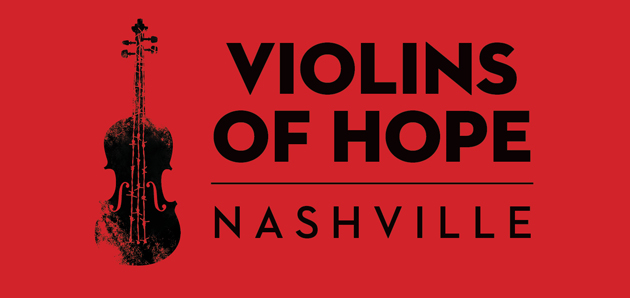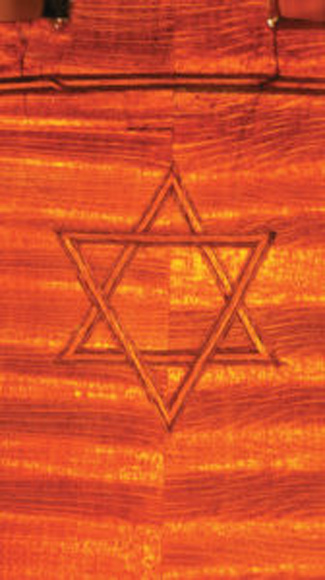
Twenty-two violins—most of which were played by Jewish musicians interned in concentration camps during the Holocaust—have arrived from Israel in Music City, where they have been heard again as the Violins of Hope in a three-concert series March 22–24. The performances were the centerpiece of a monthslong initiative designed to foster a citywide dialogue on music, art, social justice and free expression.
Vanderbilt’s Blair School of Music, the Jean and Alexander Heard Libraries, and Osher Lifelong Learning Institute are serving as programming partners for the visit, along with the Nashville Symphony and the Jewish Federation of Nashville and Middle Tennessee, among others. The Blair School and Vanderbilt Libraries have scheduled a series of musical and spoken-word performances in honor of the Violins of Hope Nashville initiative during March and April (click on the dates to learn more):
- Blair presents three chamber music concerts: March 29, April 15 and April 18
- Vanderbilt Libraries presents The Silent Voices Project: April 10
- Blair presents “Silenced Voices” concert: April 22
- Blair presents “Music on Film: Schindler’s List“: April 29
- Blair presents “Anne Frank: A Living Voice” with performances by the Blair Girls Concert Choir and Vox Grata Women’s Choir: May 15
 “Music connects us to history in a way we can relate to,” Israeli luthier Amnon Weinstein said in a 2017 interview with the Jewish Federation of Nashville and Middle Tennessee about the violins he has restored with his son, Avshi. “People in the camps heard the sound of violins going to work and coming back as orchestras played at the gates. Just thinking about the role violins played during the war makes you shiver and feel, think and identify with the victims.”
“Music connects us to history in a way we can relate to,” Israeli luthier Amnon Weinstein said in a 2017 interview with the Jewish Federation of Nashville and Middle Tennessee about the violins he has restored with his son, Avshi. “People in the camps heard the sound of violins going to work and coming back as orchestras played at the gates. Just thinking about the role violins played during the war makes you shiver and feel, think and identify with the victims.”
“It is always timely—and imperative—for every civilized society to renounce bigotry, hatred and discrimination,” said Mark Wait, the Martha Rivers Ingram Dean of the Blair School of Music. “There is no better means of embracing the message of hope than through the universal language of music.
“These instruments speak vividly of their dark history, and through this project we honor and venerate the people who owned and played them. But these instruments also remind us of the uplifting power of hope, and of our obligation to shine its light throughout the world.”